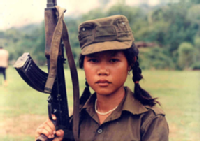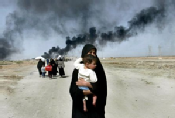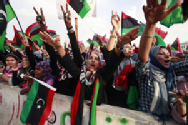Women in War and at War



Recent Developments
18th – 19th September 2014 / University of Warwick
Women’s roles in war are complex and varied and are not limited to that of victims. During the Arab Spring, women took to the streets protesting against oppressive regimes in North Africa and the Middle East. We are also witnessing a significant rise in female political activism during conflict: many women increasingly find Internet, blogs and social media a useful tool to fight oppression, advocate change but also to report from war zones. Many women actively participate in combat, in regular armed forces but also as guerillas and, freedom fighters. They are also compelled to fight as girl child soldiers.
Sexual violence against women remains an alarming and disturbing feature of modern armed conflicts. This is despite the fact that International Humanitarian Law (IHL) prohibits rape and other forms of sexual violence in war and despite the major advances in International Criminal Law (ICL) in the punishment of gender crimes. Over the past two years, some further steps and initiatives have been taken at national and international level to address this problem. For instance, in June 2013 the United Nations Security Council issued Resolution 2106 on sexual violence in conflict, calling (once again) for the prevention of sexual violence during conflicts. In April 2012, the UK Foreign Secretary, William Hague, launched the Preventing Sexual Violence in Conflict Initiative, which resulted in adopting a G8 Declaration on Preventing Sexual Violence in Conflict and endorsing the Declaration of Commitment to End Sexual Violence in Conflict, which has been signed by 70% of UN Member States.
What impact have these measures had? Will they make a real difference? Have they had any impact on the way that armed conflict is conducted? How much can the law actually achieve? What do recent conflicts tell us about the contemporary representations of women in and at war?
This conference builds on the 2012 Women in War and at War conference held at Aberystwyth University and is designed to focus in particular on recent developments in relation to women and war.
We invite proposals for papers in the following or related areas:
- Women and the conflict in Syria
- Women, the Arab Spring and the aftermath
- International Humanitarian Law: effectiveness and challenges
- International Criminal Law and the prosecution of gender-related crimes
- Representations of women in and at war
- Women, war and the media
- Women in post-conflict settings
- Gender and conflict.
Abstracts of max. 250 words should be submitted by 15 February 2014 to womeninatwar@gmail.com.
Authors of selected abstracts will be informed by mid-March 2014.
The conference is jointly organised by the University of Warwick, Aberystwyth University and The Open University



